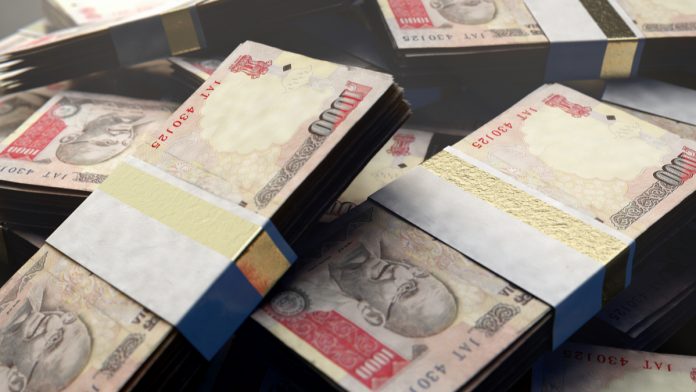- Indian Rupee (INR) holds steady as covid crises deepens
- Morgan Stanley expects GDP contraction in the current quarter
- Pound (GBP) rises after stellar retail sales data and PMI data
- Brexit tensions linger
The Pound Indian Rupee (GBP/INR) exchange rate is consolidating last week’s gains. The pair gained 0.8% across the previous week, settling on Friday at 103.94 in its fourth straight week of gains. At 08:45 UTC, GBP/INR trades +0.1% at 104.03.
The covid crisis in India continues to deepen as infections hit a new record high for a fifth straight day on Monday. Infections rose by 352,991 over the past 24 hours and the health system is collapsing under the pressure. Countries including aBritain, Germany and the US have sent medical supplies to help battle the crisis.
News of support being flown in is underpinning the Rupee. Meanwhile domestic equities are climbing higher thanks to strong quarterly results from ICIC Bank. The Nifty 50 trades +0.8% an the Sensex trades 0.9% higher. Although the indices have shed 7% and 9% respectively from their peaks in February amid the covid crisis.
Morgan Stanley has become the latest investment bank to lower their outlook for the Indian economy. Analysts at the bank say that they now expect the Indian economy to contract in the three months to the end of June.
The Pound traded mixed versus its peers last week despite strong UK economic data. Data on Friday showed that UK retail sales jumped in March as consumers prepared for the easing of lockdown restrictions. UK retail sales surged 5.4% in March compared to the month earlier, up from February’s 2.2% increase. Analysts had forecast a 1.5% rise.
UK PMI data was also encouraging and ahead of expectations. The manufacturing PMI printed at 60.7. Analysts had forecast 59. The level 50 separates expansion from contraction. The UK service sector was notably strong as the UK economy re-opened at the start of April. The service sector PMI came in at 60.1, also ahead of the 59 expected.
However impressive data has been overshadowed by Brexit woes amid rising concerns over tensions in Northern Ireland.





